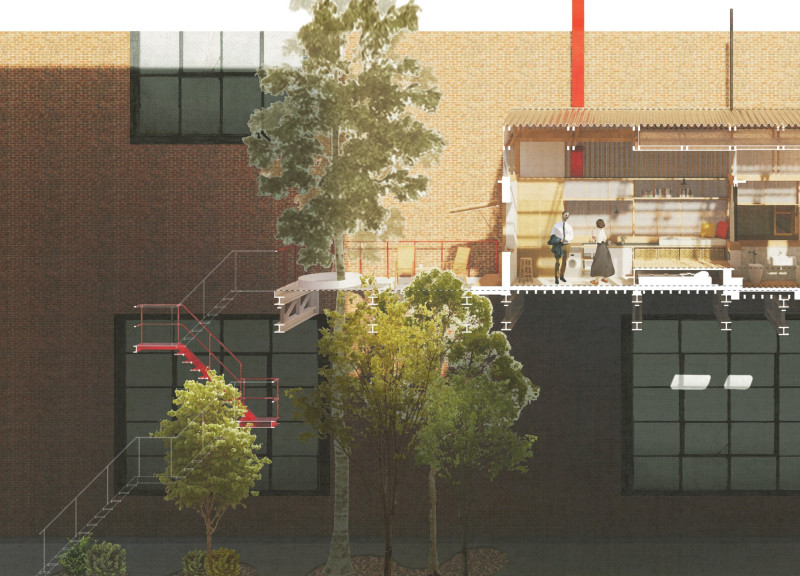5 key facts about this project
The Urban Treehouse project introduces a new way of living in Melbourne, Australia. Set within the city's growing urban environment, this design aims to provide affordable housing solutions for young professionals. By transforming abandoned laneways into residential spaces, the project focuses on making the most of underused areas while connecting the inhabitants with their surroundings.
Architecture Concept
The overall design emphasizes efficient use of space while ensuring a close relationship with the urban context. The structure is positioned between two buildings, creating an elevated space that incorporates greenery throughout. This integration not only enhances the environment but also offers a peaceful retreat from the hectic city life.
Interior Layout
Inside, the layout is open and flexible. It creates distinct areas for living, working, and relaxing. A study desk placed near an operable window allows plenty of natural light, supporting a productive atmosphere. Built-in storage solutions maximize vertical space and cut down on clutter. The arrangement of level changes cleverly hides the bedroom during the day, allowing the space to serve multiple functions.
Privacy and Natural Light
The bathroom is thoughtfully located at the far end of the house, which enhances privacy and provides full-height windows connecting to an outdoor garden area. This subtle design choice promotes a sense of calm within the compact living space. The large windows throughout the house invite natural light and offer views of the surroundings, enriching daily life.
Sustainability Measures
Sustainable practices are an important part of the design. Solar panels on the north-facing roof provide energy, while a rainwater harvesting system addresses water conservation needs. The project uses recycled materials, including timber flooring and second-hand furnishings, reinforcing a commitment to environmental responsibility.
A notable design feature is the use of perforated floor panels that create a small outdoor area above the tree canopy. This unique aspect integrates nature into the living space while enhancing the overall character of the Urban Treehouse.





















































